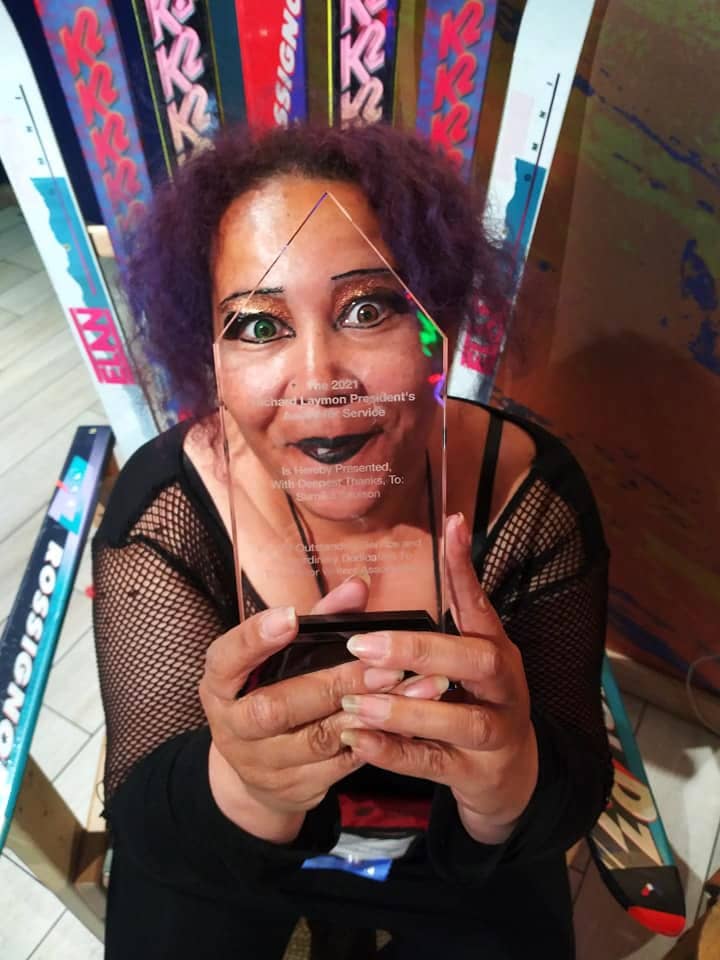
Writing while Black: Summer 2022
by Sumiko Saulson
Although the global pandemic is not over, the past year has seen the gradual return of the in-person convention. Many conventions, such as AfroComicCon, The Outer Dark Symposium of the Greater Weird and Readercon remain entirely online. Other conventions such as WorldCon and StokerCon are hybrid conventions combining in-person and online experiences.
In many ways, online-only and hybrid conventions are the best things to have come out of the pandemic in terms of improvements to the convention world. The cost of attending online is generally a great deal less expensive than attending in person, which makes these conventions more economically accessible.
Virtual event tickets are a fraction of the price of in-person tickets, usually running at about a quarter the cost. For example, StokerCon early bird in person tickets were $150, with virtual tickets running $50, a third of the price. Last-minute StokerCon tickets were $350, seven times the cost of virtual tickets.
Additionally, virtual attendees don’t have to pay for travel or hotel rooms. However, in-person conventions offer a sense of community, and a lot of writers feel invigorated now that they are making a comeback.
“It was an amazing time! For a bunch of horror writers, we sure are some funny mofos. Can’t remember laughing as much as I did. Also had some meaningful conversations with my ‘horrors of color,’ which helped fortify my optimism as far as where we are headed in the genre in terms of diversity,” said Steven Van Patten, winner of three African-African-American Literary Awards.
Virtual and hybrid events also make events more accessible to the immunocompromised and other people whose disabilities and life situations make it so that it would be difficult or in some cases impossible for them to attend a convention in person. They are also much less expensive for organizers to put on than in-person conventions.
“The best part of going to cons these days is seeing the increase of diverse creators in the community. When I first started going to cons, I was one of a few folks of color. Now I’m one of many. And it feels great!
“I love that there are other Black queer creators out there – such as yourself, Kai Ashante Wilson and Marlon James. And even in that cohort, there are immense differences! For years, I wrote my fiction in isolation, collecting rejection slips like some people collect decoder rings. Now, not only is there a readership, there are other authors. It’s a great time to be publishing!” rejoiced Craig L. Gidney, author of the “Nectar of Nightmares.”
Another positive outcome for the new in-person conventions is an increase in POC representation amongst the Guests of Honor. For instance, Floyd Norman, an 86-year-old African American animator, writer, and comic book artist who was the first Black person to be a regular employee on Walt Disney’s animation staff will be the artist guest of honor at WorldCon in Chicago this year.
Award-winning fiction writer, poet and editor Sheree Renée Thomas, whose 2000 anthology of Black speculative fiction, “Dark Matter,” launched a thousand Afrocentric spec-fic anthologies, was a guest of honor at WorldCon 2021 and StokerCon2022. And here in the Bay Area, BayCon’s Writer Guest of Honor will be Steven Barnes, the first Black Writer Guest of Honor in the convention’s 40-year history and the second POC Writer Guest of Honor.
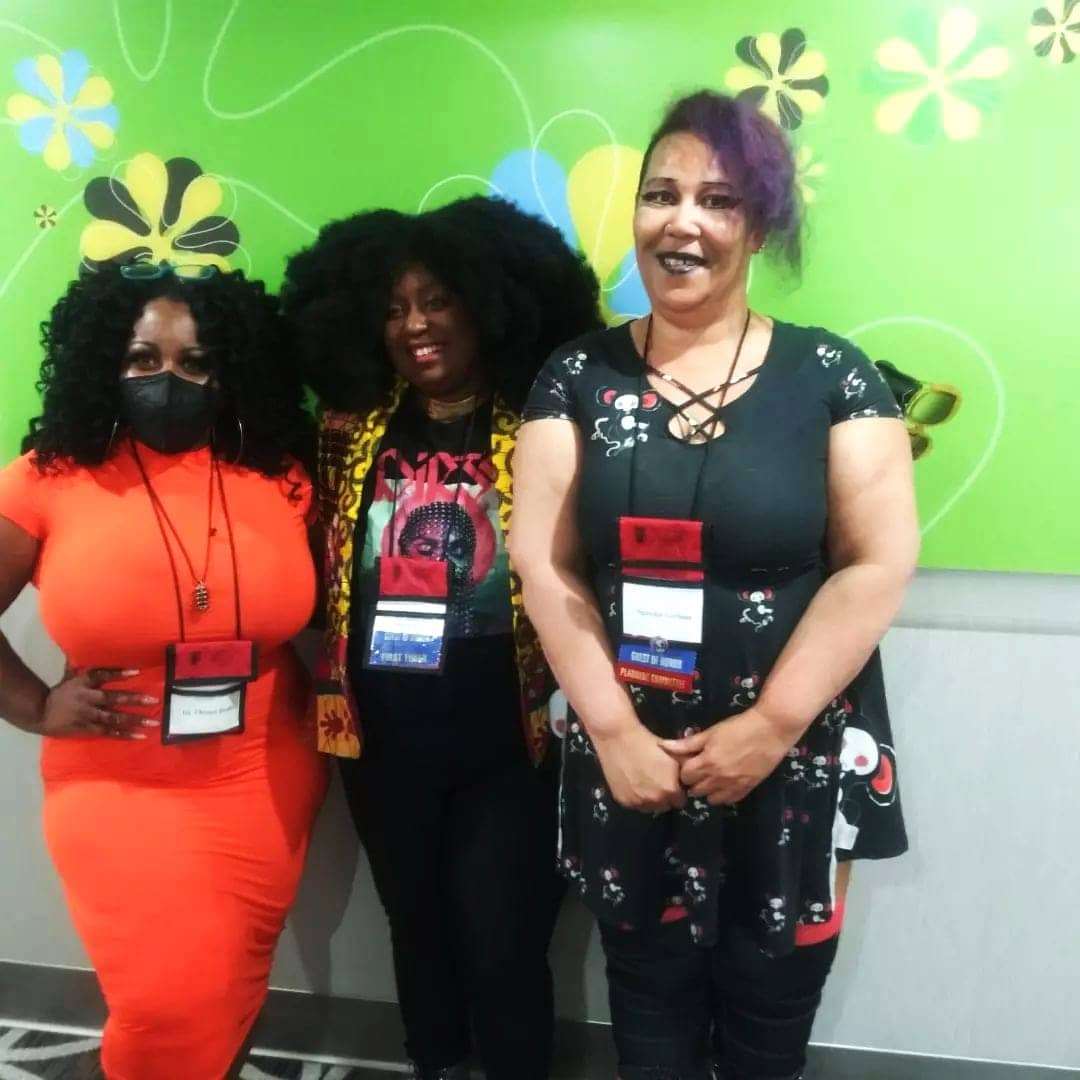
I was at WorldCon 2021 in DC in person and was a panelist there, and I just got back from StokerCon 2022 in Denver, Colo. For those who don’t know, WorldCon is the world’s foremost science fiction and fantasy writer’s convention, where the Hugo Awards are presented, and StokerCon is the preeminent horror writer’s convention, where the Bram Stoker awards are announced.
“Do you know that magically invigorating feeling you get when you revisit home, whether person or place? That is what StokerCon was like this year. We walked away with much to read and even more to do, and it felt fantastic.
“As a creative, it’s always exciting to be around like-minded people. As a business owner and an educator, I felt a renewed purpose being around new horror authors and old ones interested in learning and improving their craft. I came home ready to write more stories and create more classes for the Speculative Fiction Academy,” reflected L.M. Wood, author of “The Black Hole.”
This year, I won an award called the Richard Layman President’s Award for Service at StokerCon. It is awarded to a volunteer who has served HWA in an especially exemplary manner and has shown extraordinary dedication to the organization. I was given the award for my work as the social media manager.
In this role, I have implemented a Diversity Campaign to highlight the presence of diverse writers in our community. It is a series of heritage month interviews, highlighting diverse horror writers. Our first was last June, for Pride Month, and was done with the assistance of team members Gabrielle Faust and Elis Aaron. Since then, we have put out Latinx heritage, Indigenous peoples, deaf and hard of hearing, Asian heritage and Jewish heritage interview series.
In July, we’ll highlight Pacific Islanders. Lindy Ryan curated our Women in Horror series in March. Michelle Renee Lane and Tina Pavlik have been on the team coding and posting the interviews since earlier this year. So it is indeed teamwork that makes the dream work.
“This is my second StokerCon. It was a pleasure to be among fellow enthusiasts and aficionados. For four days, I got to hang out with people who were as obsessed with storytelling as I was. And everyone I met was welcoming. The MC of the Stoker Award ceremony called it ‘goth prom.’
“As a queer person of a certain age (ahem), I didn’t go to my prom. So it was great to go as an alternative version of one. I especially enjoyed the Black Caucus photo op,” said Craig L. Gidney.
StokerCon 2022 was undoubtedly the most diverse writer’s convention I have ever attended. There was a diversity of people of color and members of the LGBTQ community in attendance, as well as a lot of our African American and African Diaspora brothers, sisters and siblings.
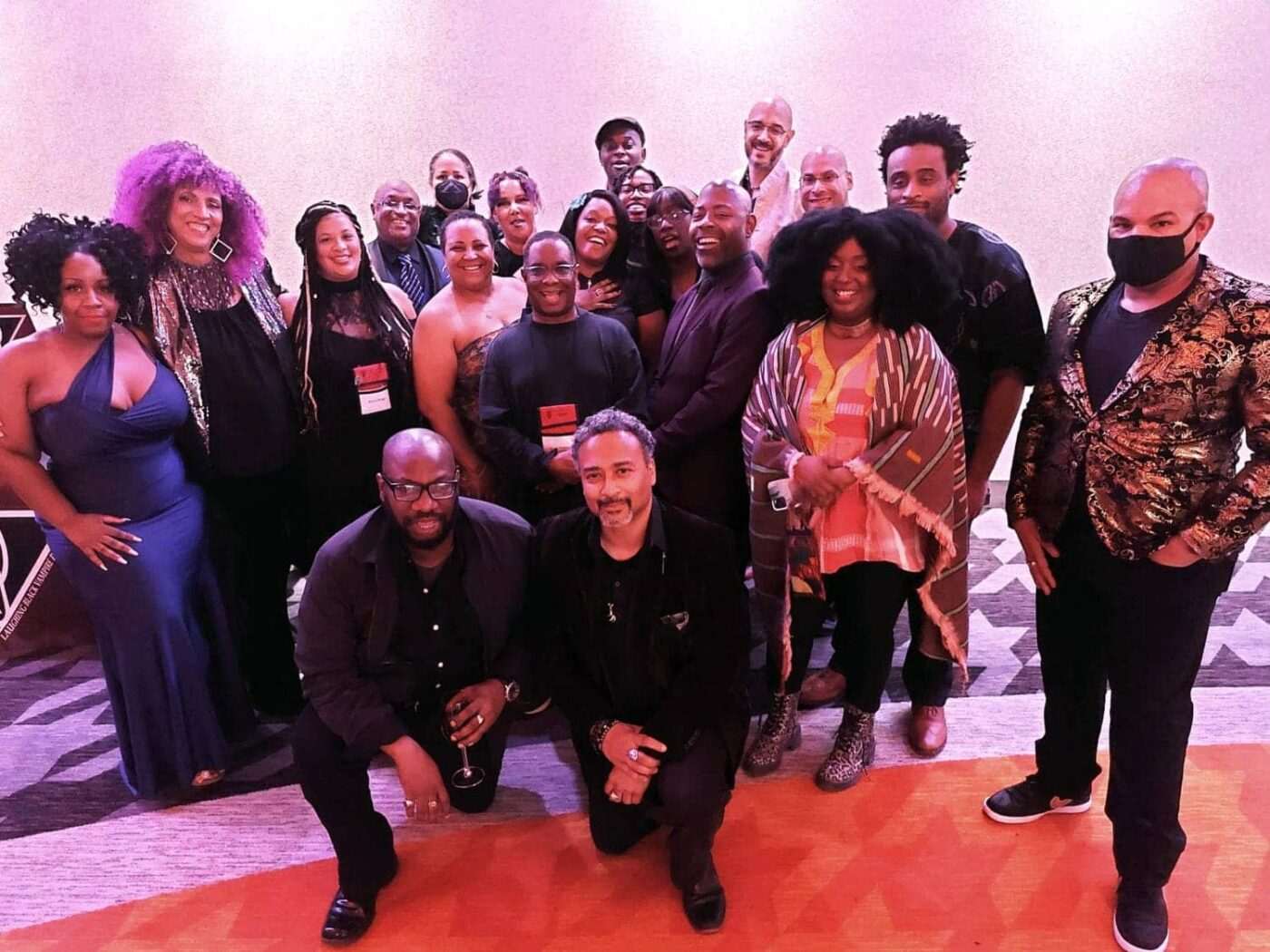
When we took the Black Caucus photo that Linda Addison – the first African American recipient of the Stoker Award and the Diversity Committee chair – has been taking every year for a while now, there were about four times as many people as there were in the 2016 photo the first year I attended. And there were at least two other Black folks that we didn’t find in time to wrangle for the photo.
When I got up to receive the award, I was surprised that Brad C. Hodson, a previous recipient, referred to my 2019 San Francisco Bay View article “#StokersSoWhite: 2016 Horror Writers Association boycott,” saying that I called the Horror Writers Association on their bullshit, offered suggestions on how to fix things and then came on board to implement the changes.
It was very gratifying and I felt very seen. The introduction and my acceptance speech are both on tape.
I am grateful for the award. It is nice when people notice the work you’re putting in. At the same time, I would like to state that there is still a dark side to the speculative fiction fandom that we are all aware of. In the wise and well-stated words of Craig L. Gidney:
There is a loud minority that is against diverse storytelling – often hiding behind specious meritocracy arguments.
“I’ve been very lucky in that my fiction has connected positively with readers. One of the persistent misconceptions about being a writer from a marginalized community is that one’s writing is All About the Message. I’ve been blessed with reviews that recognize the quality of my craftsmanship and my prose was called ‘Dionysian’ by the late Tanith Lee.
“However, there is a loud minority that is against diverse storytelling – often hiding behind specious meritocracy arguments. For instance, the appearance of BIPOC or queer individuals in fiction is a part of a nefarious ‘woke’ agenda.
“I have been attacked online by members of this minority, who weaponed online trollfarms, and been called all manner of vile names. And I got off lightly! Other authors have borne the brunt of these attacks. Unfortunately, that’s a dark side of being a visible creator.”
As I read Mr. Gidney’s reports of being attacked online by people who are thoroughly against diversity, I am reminded that back in 2019, when I wrote the original article, I was the subject of both local and online harassment.
The article was not the only controversial statement I made in 2019. My partner and I were in a situation where a transphobic candlemaker harassed us at the San Mateo County Fair. I was being harassed locally over the article I wrote called “#HugosSoWhite: The literary convention diversity scandals” by a few – certainly not all – members of the BayCon community.
I had called a local goth club on their bullshit and asked them to kindly replace their problematic logo, which featured an image of a man being lynched in an oak tree. Someone threatened to doxx me over that – that is, reveal my personal information online in forums filled with people who would want to harass me.
I also had an issue with a member of the men’s rights activist organization over a class on writing I was teaching in the kink community. So I had a lot of enemies. And one of them swatted me.
Swatting is the term for a dangerous practice by online bullying communities, where they call the police, or the FBI, or SWAT on someone and make a false report in order to have them harassed. This is especially dangerous for people of color, due to law enforcement’s tendency to shoot us. That fall, someone swatted me by sending La Migra to my house, to look for a dangerous undocumented fugitive.
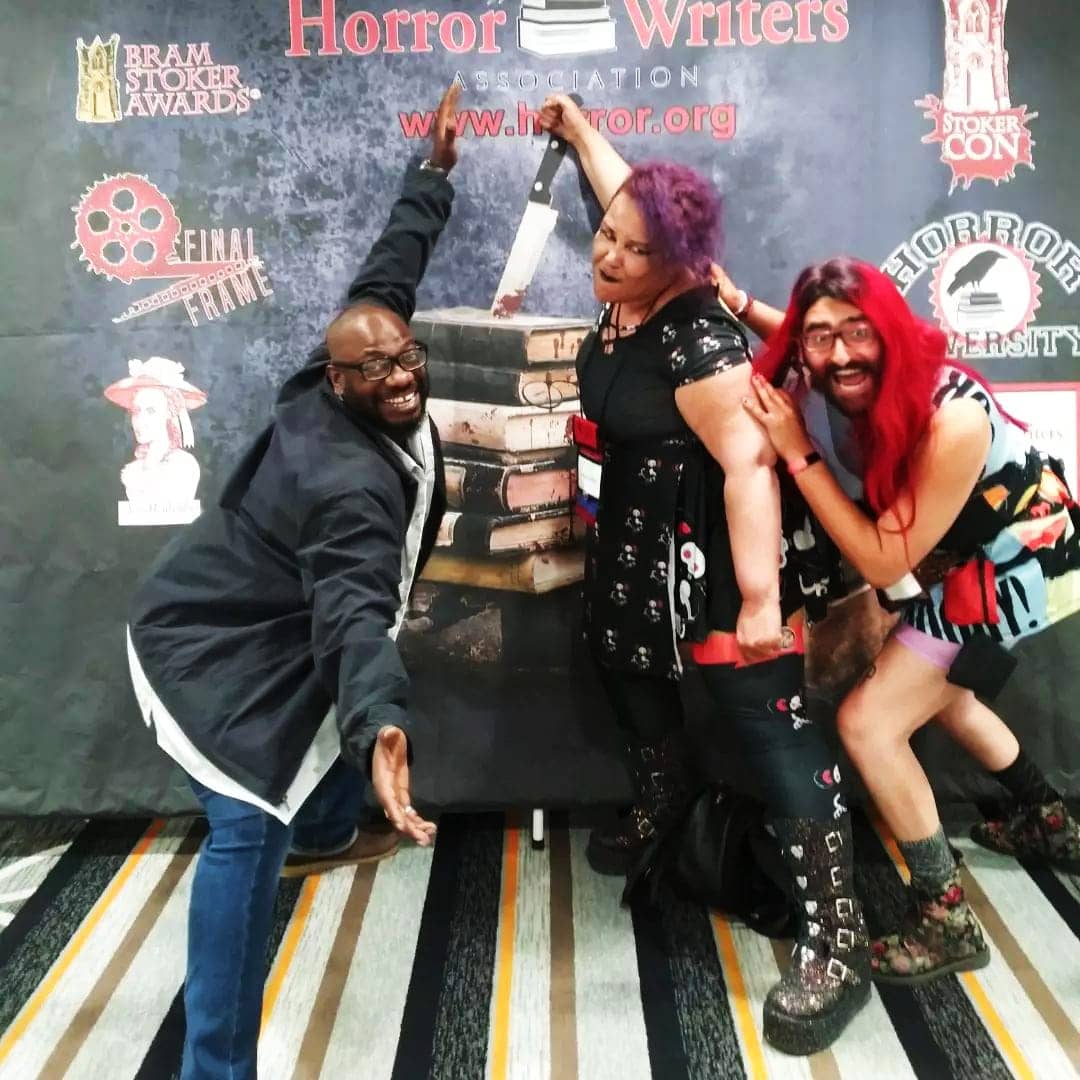
They showed up at my front door WITH GUNS. They banged on my door, and when I opened it, they showed a badge and had guns pointed at me. They asked if the person was here. He was not.
They asked how long I had been living here. I told them for more than a decade. They packed their guns up, and they left! It was terrifying. So I want you to know that there is a cost of speaking up, and as a result, many are afraid to.
The fandoms can be problematic as hell. As many of us know, both John Boyega and Kelly Marie Tran received racist death threats from Star Wars fans. And, as a few Black authors pointed out in conversations around StokerCon, right now a lot of our allies want to do the right thing because they specifically don’t want to be associated with people like Vox Day, the racist who ran for president of WorldCon in the Hugo Awards scandals.
People are in a heightened state of awareness about things like the death of George Floyd, which got so much news coverage in 2020. Even with that, though, we still see things like the offensive racist prom invite in Orange County mocking his death.
Just before the June issue of the Bay View’s press deadline, another scandal erupted on May 21, when the Science Fiction Writers Association removed Mercedes Lackey from the Nebula Conference for using a racial slur, specifically for referring to Samuel Delaney as colored.
“When folks fuck up, it’s important to call that out. Even when things are done in a spirit of warmth and kindness.”
The term “colored” is associated with the Jim Crow era. It was used on signs in the segregated South when there were water faucets and bathrooms marked “White” and those marked “Colored.” For this reason, it was removed from the vocabulary starting in the ‘60s, and is considered a slur by many people.
Black, queer speculative fiction writer Jen Brown, who was on the panel, said on Twitter:
“When folks fuck up, it’s important to call that out. Even when things are done in a spirit of warmth and kindness. (Delany’s work was being *praised,* as it should be!). But in that moment, the power dynamics left me speechless.
“I was the only Black panelist. I’m a newer author without many publishing credits. I’m in my early 30s, and was referred to as ‘young’ during the panel. (That’s fine. I am young.) Those aren’t excuses. But they are illustrative of the power differentials at play in SFF,” wrote Jen Brown, Ignyte Award-nominated science fiction and fantasy author.
In the wake of the incident, the power dynamics remained in play, as older, white authors have flocked to the File 770 article on the situation in defense of Mercedes Lackey, many of them citing Samuel Delaney’s personal lack of offense at the comment in their sometimes mean spirited comments about Jen Brown. Many such comments were removed from the “r/fantasy” Reddit.
Mercedes Lackey’s husband, Larry Dixon, began posting problematic statements on Twitter, such as: “I am deeply sympathetic to the rage that PoC must feel over their social issues being used to manipulate people,” as if he speaks for Black folks. He does not.
Unfortunately, Delaney’s appearing to have sided with Lackey is emboldening Dixon to make statements that effectively encourage people to come at Jen Brown with gaslighting recriminations and occasionally racist vitriol.
“To move forward, it’s important not to try to use older, established Black voices to silence newer ones. There is no progress in that. Be better than sci-fi in this at least,” stated Dr. Chesya Burke, author of “Let’s Play White.”
And in the world of horror writing, there was yet another scandal, as author Gene O’Neil published a novel called “The White Plague Chronicles,” on independent press Silver Shamrock. The book’s back description included the words “a previously unidentified virus that is far deadlier than Ebola, and even more sinister, as this horrific disease is genetically targeted to kill only the members of the Caucasian race.” And, the cover featured the stylized image of the lower half of a Black man’s face.
The implication that Black people were out to get the white folks and engineer a white-targeting ebola virus sounded really racist to a lot of people, and Silver Shamrock subsequently closed down. A lot of people are defending that Mr. O’Neil is just an out-of-touch older horror writer, and I honestly haven’t read the book, but the description alone is pretty problematic.
So, while we have come a long way, the fight is far from over. And we need to keep putting in work to make sure that we move forward and don’t roll back to the past. If there is anything that the disturbing news about the possible overturning of Roe v. Wade should teach us, it’s that we live in regressive times.
Author Margaret Atwood, who wrote “A Handmaid’s Tale,” said she believes the threat to overturn it is payback for the #MeToo movement. The very same day I received my award, Saturday, May 14, the headlines reported a racially motivated shooting of 10 people in Buffalo, New York – most of them Black.
We live in dangerous times. So, perhaps it is more important than ever to appreciate what progress there is, while at the same time, never forgetting how much work there is that needs to be done.
Thank you to Craig L. Gidney for the thoughtful quotes and commentary in this article. His new book, “The Nectar of Nightmares,” Underland Press, is a collection of recent (2015-present) stories that belong in the region between weird and horror fiction.
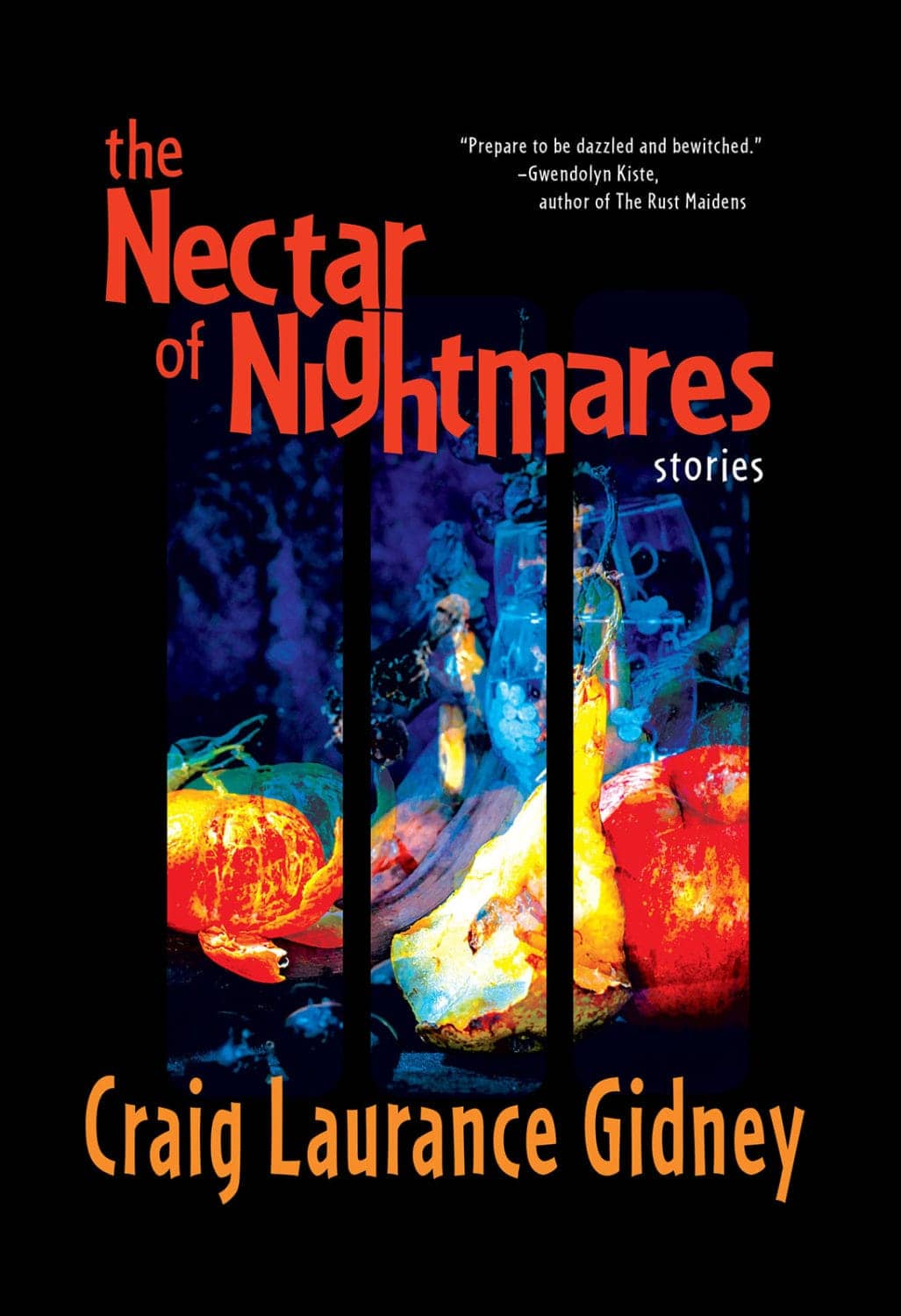
Most of the stories feature Black, queer and trans characters. There’s a story set in the Ballroom Scene and another that deals with environmental racism. There are a couple of secondary world stories, one of which vaguely alludes to the King in Yellow mythos. The one aberration is called “Myth and Moor,” and features the author Emily Brontë’s encounter with a supernatural being.
Bestselling author Sumiko Saulson (they/them or ze/hir) writes award-winning multicultural sci-fi, fantasy, horror and Afrosurrealism. Their latest novel, “Happiness and Other Diseases,” is available on Mocha Memoirs Press. Winner of the 2021 Horror Writers Association Richard Laymon Presidents Award, 2017 Afrosurrealist Writer’s Award, 2016 HWA Scholarship from Hell, and 2016 BCC Voice Reframing the Other Award, their monthly series Writing While Black follows the struggles of Black writers in the literary arts and other segments of arts and entertainment. Support them on Patreon and follow them on Twitter and Facebook.





